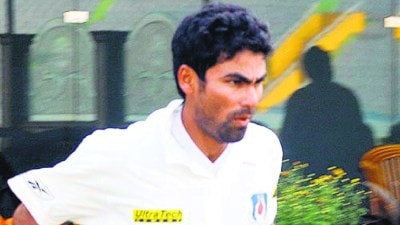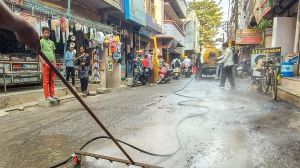Shocking delays mar irrigation projects
NEW DELHI, MAY 26: At a time when the country is reeling under a severe drought, a glance at the progress of scores of irrigation projects...

NEW DELHI, MAY 26: At a time when the country is reeling under a severe drought, a glance at the progress of scores of irrigation projects reveals a shocking apathy towards water resources management. A whopping 476 projects have spilled over from earlier Five-Year Plans to the ongoing Ninth Plan, leading to huge time and cost overruns.
The total cost of these major, medium and small irrigation projects is a mind-boggling Rs 1,26,318 crore and the spillover cost itself is a staggering Rs 79,321 crore.
The fate of foreign-funded projects is no better. Of the 19 ongoing projects across the country, involving a total external aid of Rs 7,757 crore, 13 are lagging behind schedule. The Ministry of Water Resources has described their progress varyingly from 8220;not satisfactory8221; to 8220;delayed8221; and 8220;slow8221;.
Some of the cases are telling. Drought-hit Orissa, for instance, has utilised only 46 per cent of the aid even after 64 per cent of the project period had lapsed under a US 290.9 million Water Resources Consolidation Project. Even more unforgivable is the state allowing a grant of euro 10.7 m by the European Economic Community for a minor irrigation project to lapse.
One of the objectives of the EEC project was to develop farmer water user groups and associations capable of running the show through collection of water rates. Till March this year, only euro 0.465 million had been used as the project was delayed. While the EEC had approved the work plan and budget in 1998, the state government failed to issue executive instructions empowering the water users8217; associations to take over the organisation and maintenance of the schemes. The EEC has now stopped its investment in the project.
A similar story of backlogs and low disbursements of money comes from another state gripped by drought 8212; Madhya Pradesh. Here the Rajghat Canal Irrigation Project, aimed at irrigating 1.21 lakh hectares in six districts through construction of canal systems, reports 8220;highly unsatisfactory8221; progress. The Japanese agency, OECF, has pledged a whopping Rs 421.08 cr, out of which only 11 per cent has been utilised though 60 per cent of the project period had lapsed. Delays in getting environmental and forest clearances is one major reason for the project to flounder.
Or take the case of the minor irrigation project intended to cover 17 districts in Maharashtra. The agreement with the donor agency, KFW, Germany, was signed some 18 months ago, but the formalities are still on for the project whose thrust area would be on farmers8217; participation in management and operation. Utilisation, therefore, has been zero.
Delays occur not only during implementation of the projects, but often even before the proposals reach the donor agencies. When a proposal for a major irrigation project is received from a state government, it is first examined by the Water Resources Ministry and then sent to the Planning Commission for in-principle approval. It is then routed to the Department of Economic Affairs, which in turn poses the proposal to the donor agency.
If it is a minor or a medium irrigation project which does not involve inter-state disputes, the state governments are empowered to clear the proposals. But major and minor irrigation projects which have an inter-state angle need to be appraised techno-economically by the Central Water Commission, require clearance from the technical advisory committee of the Water Resources Ministry and then investment clearance from the Planning Commission.
At each stage, proposals get entangled in red-tape, resulting in time and cost overruns. No wonder, out of the total irrigation potential of 139.89 million hectares in the country, only 89.56 million hectares have been brought under irrigation since Independence.
- 01
- 02
- 03
- 04
- 05































